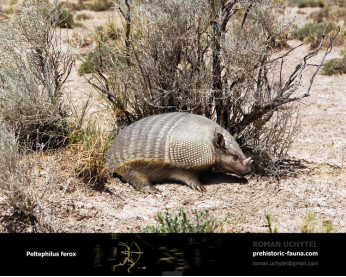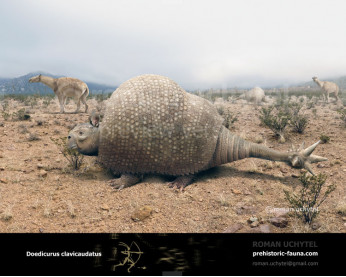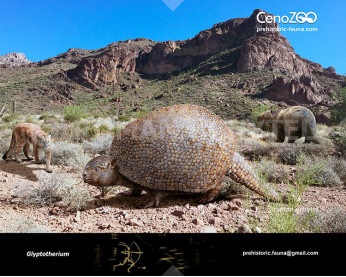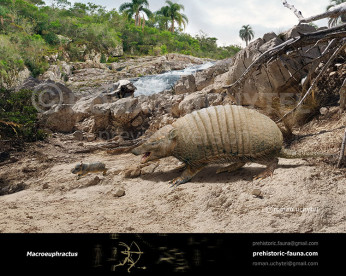Holmesina
377377Holmesina (†Holmesina Simpson 1930)
Order: Cingulata
Family: †Pampatheriidae
Temporal range: living during the Pleistocene ( ~2.6–0.012 Ma, North and South America)
Dimensions: 2 m in length, 110 cm in height, ~230 kg of weight.
A typical representative: Holmesina septentrionalis
Holmesina is a genus of pampathere, an extinct group of armadillo-like creatures that were distantly related to extant armadillos. Like armadillos, and unlike the other extinct branch of megafaunal cingulates, the glyptodonts, the shell was made up of flexible plates which allowed the animal to move more easily. Holmesina species were herbivores that grazed on coarse vegetation; armadillos are mostly insectivorous or omnivorous. They travelled north during the faunal interchange, and adapted well to North America, like the ground sloths, glyptodonts, armadillos, capybaras, and other South American immigrants. Their fossils are found from Brazil to the United States, mostly in Texas and Florida.
Holmesina (†Holmesina Simpson 1930)
Order: Cingulata
Family: †Pampatheriidae
Temporal range: living during the Pleistocene ( ~2.6–0.012 Ma, North and South America)
Dimensions: 2 m in length, 110 cm in height, ~230 kg of weight.
A typical representative: Holmesina septentrionalis
Holmesina is a genus of pampathere, an extinct group of armadillo-like creatures that were distantly related to extant armadillos. Like armadillos, and unlike the other extinct branch of megafaunal cingulates, the glyptodonts, the shell was made up of flexible plates which allowed the animal to move more easily. Holmesina species were herbivores that grazed on coarse vegetation; armadillos are mostly insectivorous or omnivorous. They travelled north during the faunal interchange, and adapted well to North America, like the ground sloths, glyptodonts, armadillos, capybaras, and other South American immigrants. Their fossils are found from Brazil to the United States, mostly in Texas and Florida.

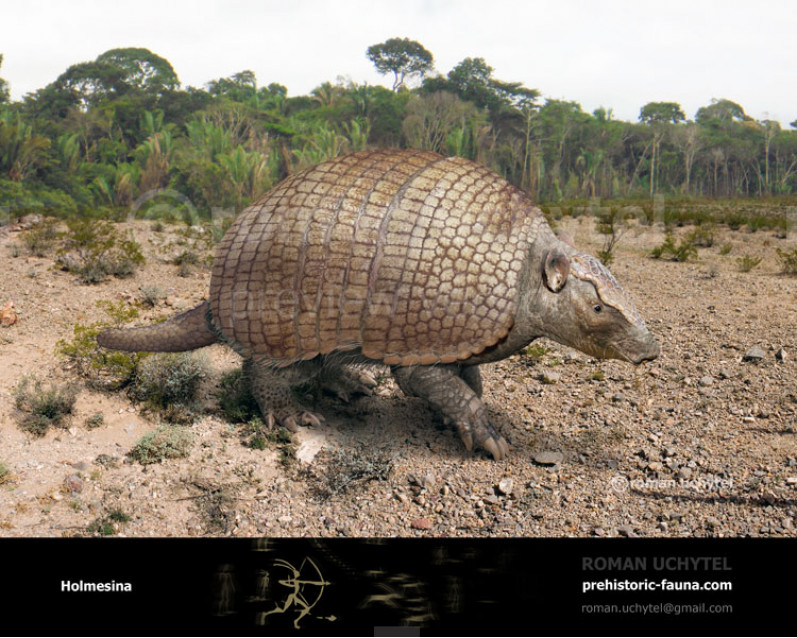
-797x638.jpg)
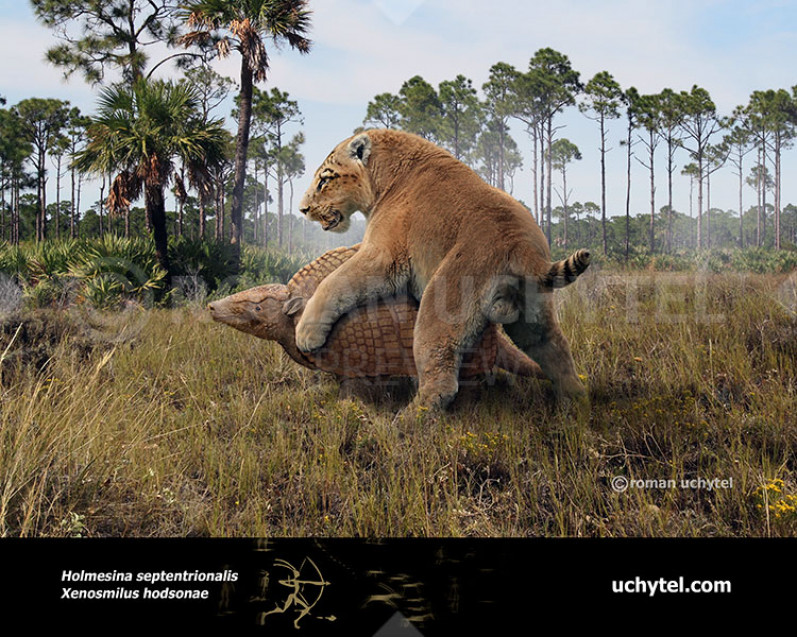
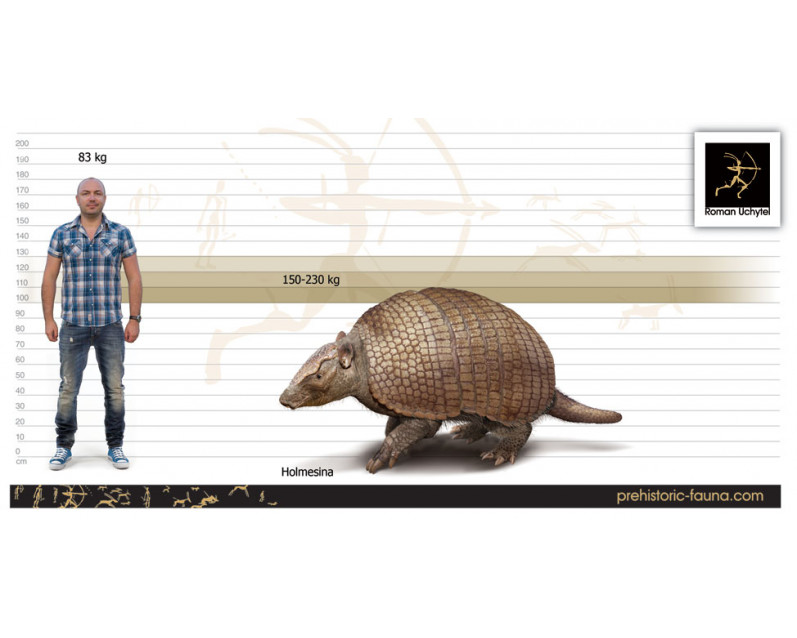

-70x56.jpg)


-346x277.jpg)
